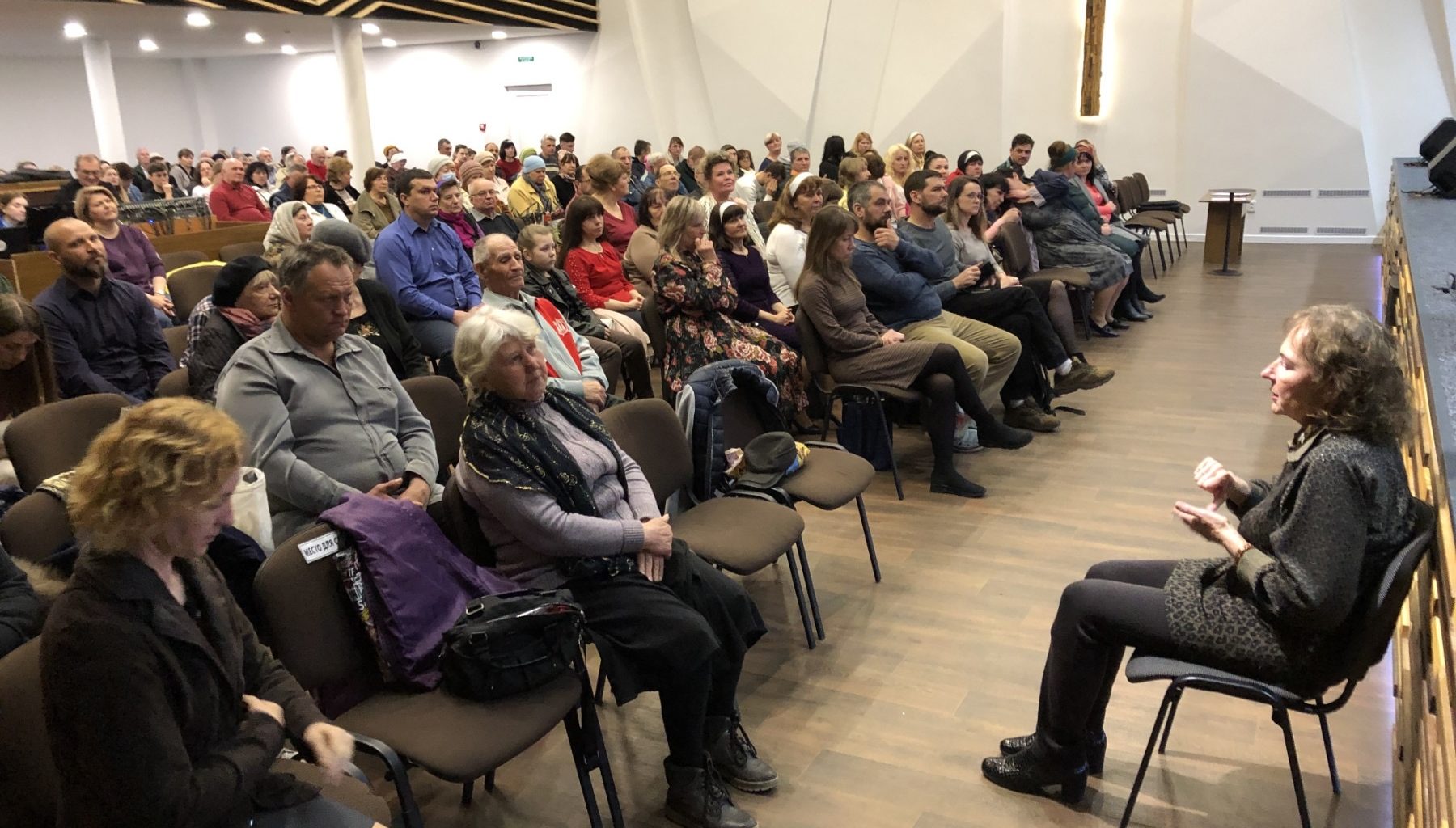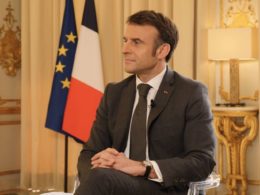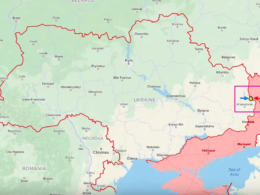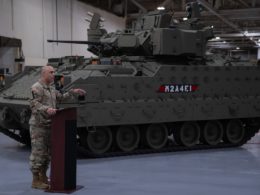The Russian occupation brought immense hardship and danger for three Ukrainian religious figures who found themselves at odds with the Russian invaders’ worldview. Subjected to interrogations, threats, and coercion, they had no choice but to leave their communities and everything familiar to seek refuge elsewhere. They were lucky to escape safely and now can share the grim realities of existence under the yoke of Russian control.
Protestant pastor imprisoned, pressured to endorse Russian occupation
Dmytro Bodiu was placed in an impossible situation: to use his church in Melitopol, Zaporizhzhia Oblast, as a propaganda mouthpiece for the Russian occupation forces that took over it in 2022 or leave his hometown in southeastern Ukraine, where he was born and became a pastor of the Evangelical church Word of Life. After death threats, interrogations, and an arrest, he chose the latter. Now, his former church building stands without crosses, converted into a police station of the occupiers.
All confessions that refuse to toe the Russian line await the same fate: only the Russian Orthodox Church is allowed.
This flight from Russian occupiers was the second in his life: in 2014, when Russia annexed Crimea, Dmytro was expelled from the occupied peninsula, where he lived with his family. His American citizenship, which Dmytro got while living in the USA before returning to Ukraine to become a pastor, was incompatible with Russian occupation.
Eight years later, Russian occupiers reached him in Melitopol.
Start of the full-scale war and arrest of the pastor
On the dawn of 24 February 2022, Russian missiles hit the south-Ukrainian town of Melitopol: it had a military transport airport. Fighting ensued as Russia pursued its goal of a land bridge to Crimea. Melitopol fell on the next day. Some of its residents started to flee to reach Ukraine-controlled territories; others stayed, and some moved to live in the church Word of Life, where Dmytro was a pastor.
The church provided food, shelter, and solace. Dmytro wanted to help and support people in the church for as long as possible.
However, the more Russians established their power over occupied Melitopol, the more pressure the Ukrainians who stayed behind felt. Dmytro was no exception. He got arrested on 19 March, just 23 days into the full-scale war.
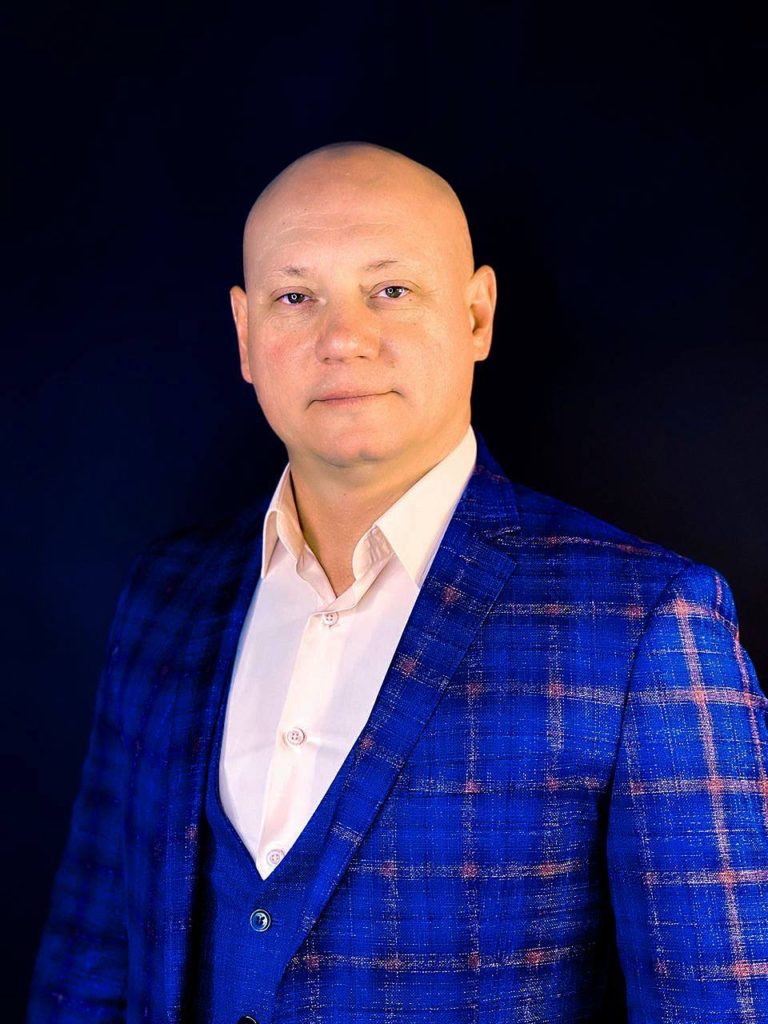
“They called me an American spy because of my American citizenship, and also a terrorist, a Nazi. They knew who I was since that time in Crimea in 2014. They said that I was a spy, working for the CIA, financing underground activities in the city. They told me they had an order to kill me,” Dmytro recalled.
“During the interrogation, I asked them to bring me a Bible. I read the Scripture and prayed; they didn’t beat me but interrogated me every day. I anyway felt some peace – the Lord was with me, comforting me there.”
He spent eight days in prison. The Russians did not kill him. He assumed it happened through negotiations of his foreign friends with the Russian authorities.
When Dmytro returned home, the pressure did not subside. The Russian occupiers came every second day, persuading him to cooperate with them. This cooperation envisioned changing and influencing people’s minds through church services, convincing them that the newly imposed occupation government was good and actually “took care” of people.
Escape from Russian-occupied Melitopol
That’s when Dmytro decided to flee. He couldn’t agree to use his church ministry for Russian political goals and feared being imprisoned once again. He and his family left on 12 April 2022. Exiting the Russian-occupied territory of Ukraine was a complicated and dangerous task. The Russians did not allow leaving to Ukrainian-controlled land, only to Russia proper, having traveled through which he reached Latvia. After that, they reached Warsaw, their final destination.
“The Russian Ministry of Internal Affairs (MVD) is now in our church building. They cut off all the crosses. Only the Russian Orthodox Church (ROC) or Ukrainian Orthodox Church of Moscow Patriarchate can function there. All others – Catholics, Protestants, and the independent Orthodox Church of Ukraine are outlawed,” Dmytro said.
When Dmytro fled, and the Russians closed his church, his parishioners who remained in Melitopol still found a way to gather and pray together. They started gathering in the house where Dmytro and his family used to live. However, this didn’t last for long. About 1.5 months ago, Russian soldiers entered the house during one of the home church gatherings. They put everyone face down on the floor, interrogated and threatened everyone. Now, people cannot meet in Dmytro’s family house. Russians occupied it as well.
“They take not only church buildings but also private buildings. They are like pirates. They come and take everything they like,” Dmytro said.
Ukrainian Orthodox bishop who refused to bow to the “Russian world”
Nykodym lived in Oleshky, Kherson Oblast, when the Russians came in 2022. Remaining there was impossible: the Russian occupiers were convinced he was an arm of Ukraine’s security service, as this is the only model of church-state relations that exists in Russia.
The future Orthodox bishop studied at the Moscow Institute of Physics and Technology but chose to devote his life to serving God. He came from a Christian family and always believed in God, even though it was hard to show their faith during the Soviet times.
“I remember that there was such a motive, you know, which constantly pushed me to look for something that would not just end with retirement, something close to the heart so that it could become the main occupation of my life. Therefore, I connected my life with the church,” the bishop recalls.
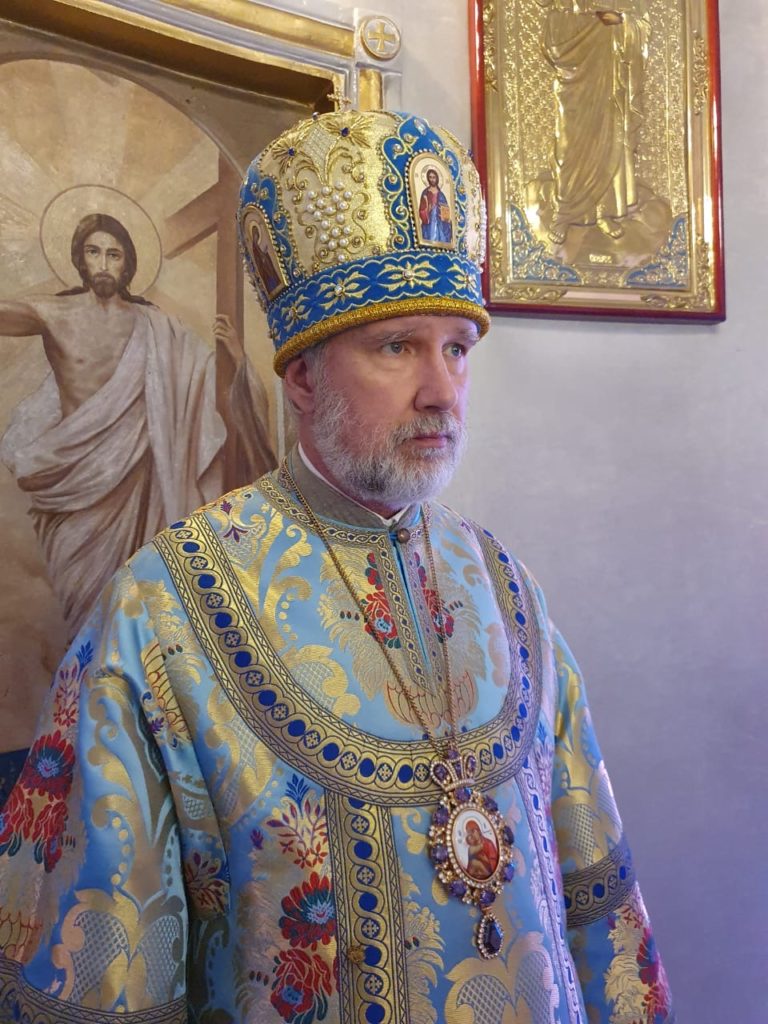
The “Russian World” ideology: a dangerous driver of the war
When he was still under the Moscow Patriarchate, he encountered how Kremlin narratives worked through this church and promoted the “Russian world” in Ukraine. This ideology, with its theological core that pits “Holy Russia” against the “godless West,” has gripped the minds of many Russians and is believed to be the driving force of Russia’s war. It has many Russians believing that their mission is divine and cosmic and that they fight against the “global evil” represented by Western countries, the US, and NATO.
The “Russian World” doctrine extolls the idea of “traditional values,” which its creators claim represents Christian beliefs. They argue that liberal ideas have corrupted the West, while Russia needs to save the world from these dangerous notions.
“For them [Russians], the whole world is lousy, except them. They live badly and are actually jealous of that ‘Western’ world. While trying to explain why they live miserably, they shout, ‘We are the Russian World, we are a great nation, we will tear everyone apart, we will break your better lives.’ That’s what they’re doing in Ukraine today,” Nykodym said.
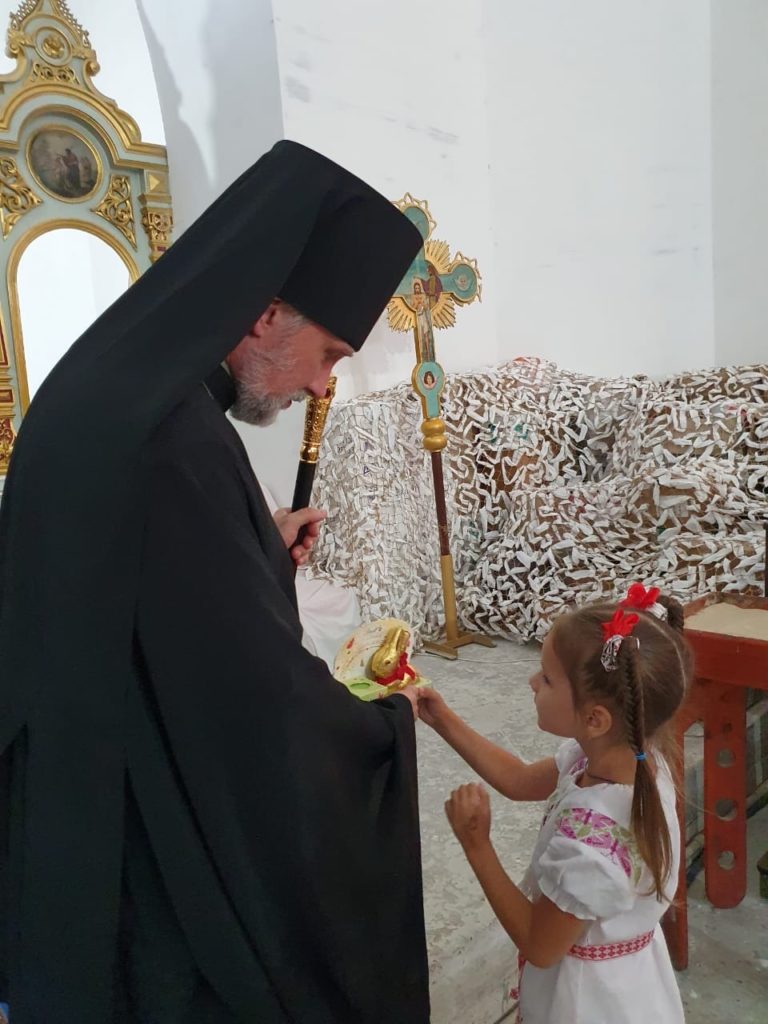
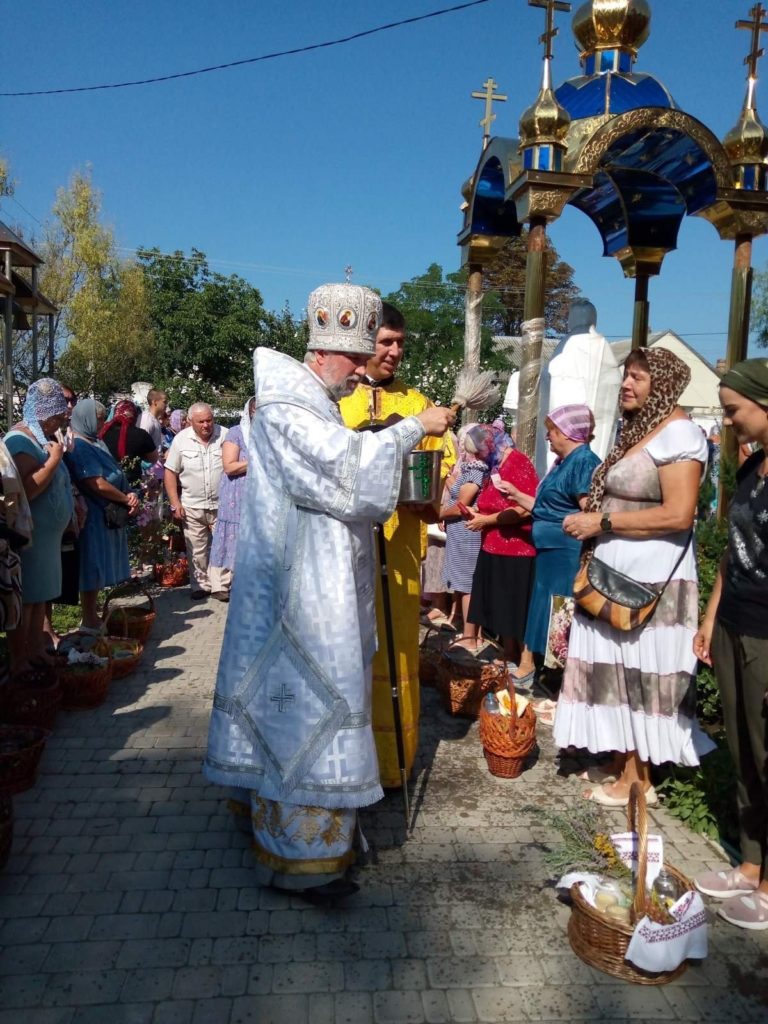
Nykodym, bishop of the Orthodox Church of Ukraine (OCU) during church service
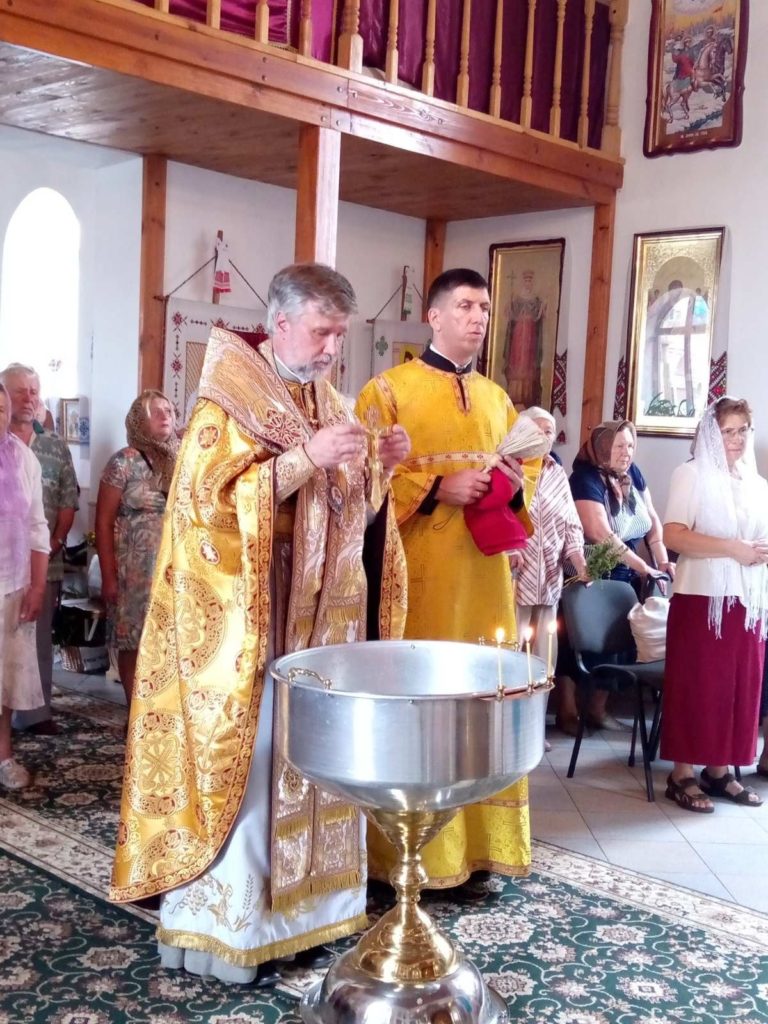
Nykodym, bishop of the Orthodox Church of Ukraine (OCU) during church service
Russian occupiers interrogate Ukrainian Orthodox Church bishop
As he never supported the Russian World, living on the occupied territory became challenging. The occupiers aimed to subjugate all churches and other institutions to the ideas of the “Russian World,” which reinforces the Kremlin’s narratives that justify Russia’s invasion of Ukraine.
If someone did not agree, interrogations started. Nykodym remembered some of the conversations he had with Russian soldiers while trying to leave the occupied area.
Russian soldier: “What is your attitude towards the SVO (Special Military Operation)?” v– Russia’s euphemism for invading Ukraine.
Nykodym: “I’m a priest, how can I support something where so many people suffer and die?”
If he said he didn’t support the SVO, they would most likely kill him, but saying he endorsed it felt morally wrong to Nykodym. He avoided a direct answer to save his life.
Russian soldier: So you are a pacifist?
The next question was right in his face:
Nykodym: Call me that, then.
Russian soldier: Who blew up the Kakhovka dam?!
Nykodym: I’m not a military man. I wasn’t there. I don’t have electricity, I don’t listen to the radio, I have no idea what’s happening in the world. I only know that my house was washed away. That’s all.
The flood damaged Nykodym’s house. He blamed the Russians for this disaster because they started this war in the first place, but he again sidestepped the answer to avoid even worse danger.
508 days of occupation and multiple attempts to escape
In the summer of 2023, when bishop Nykodym was trying to flee the occupied Kherson Oblast with his mother and another woman, the interrogations on the block posts continued. Russians questioned him there for five hours. They claimed he was in the wrong church and checked his phone.
Russian soldier: Why is your phone in Ukrainian?
Nykodym: I will tell you even more: I also speak Ukrainian daily at home. I bought it in the store with Ukrainian settings and did not see a reason to change the language. Is the Ukrainian language prohibited somewhere in Russia?
The interrogator changed the subject:
Russian soldier: You understand that any religious organization is a semi-activity of special forces. It means you have to cooperate with the SBU (Security Service of Ukraine).
Nykodym: My whole experience shows this is not the case.
They did not find any evidence, and bishop Nykodym managed to escape to Ukraine after a few failed attempts. He spent 508 days in occupation.
Now, he is the bishop of the Orthodox Church of Ukraine, the chief of Kherson Diocese that includes all Kherson Oblast, even though a part of this region still remains under Russian control. Nykodym believes there will be a unified Orthodox Church in Ukraine sooner or later without this division and hostility.
“We are the Church of Christ, after all. These divisions do not reach the heavens. The spiritual will prevail eventually,” Nykodym said.
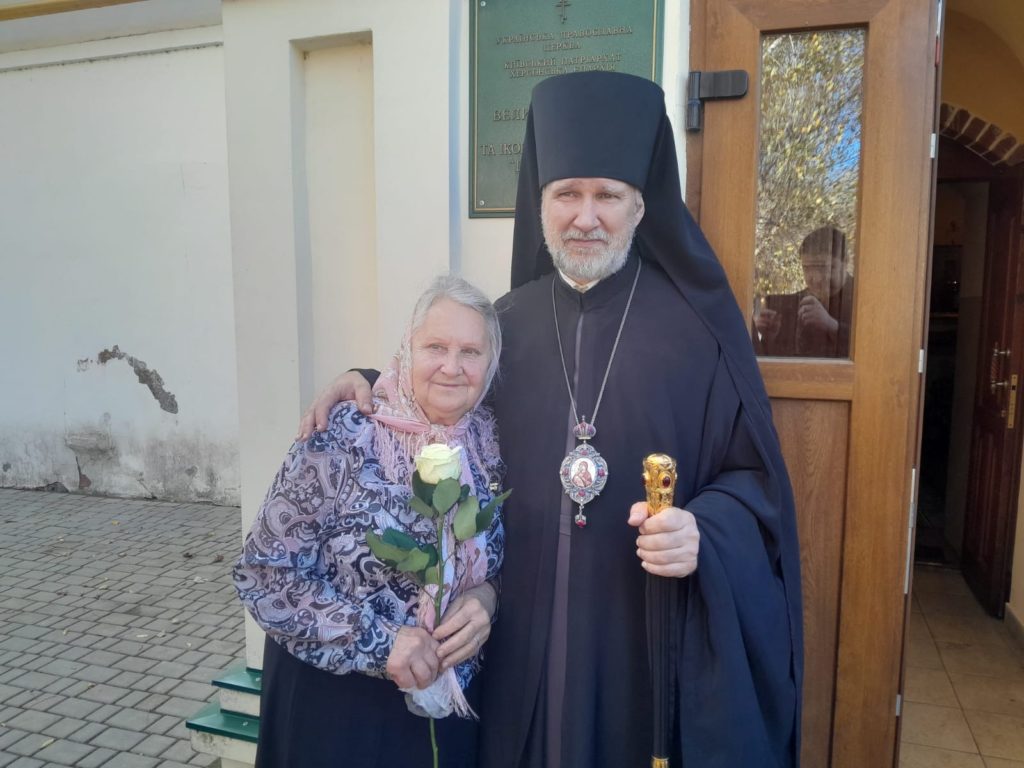
Grace Evangelical Church in Melitopol: survived Stalin but not Russian occupation
Mykhailo Brytsyn was not the first believer of his church persecuted for the faith. His grandfather spent nine years in prison for his religious activities during the Stalin regime. His wife’s grandfather spent 16 years in prison for the exact same charges.
The Soviet authorities also ordered the execution of all the members of the protestant church Grace in 1936. Despite this pressure, the church still survived and continued its services until 2022, when Russians invaded Ukraine full-scale.
Melitopol was occupied in the first days of the war. Mykhaylo Brytsyn decided to stay as long as possible to help people, support their spirits with church services, and distribute humanitarian aid. He had already experienced how churches unite and cooperate during crises because he remembered how refugees were coming to Melitopol in 2014 from other occupied Ukrainian territories.
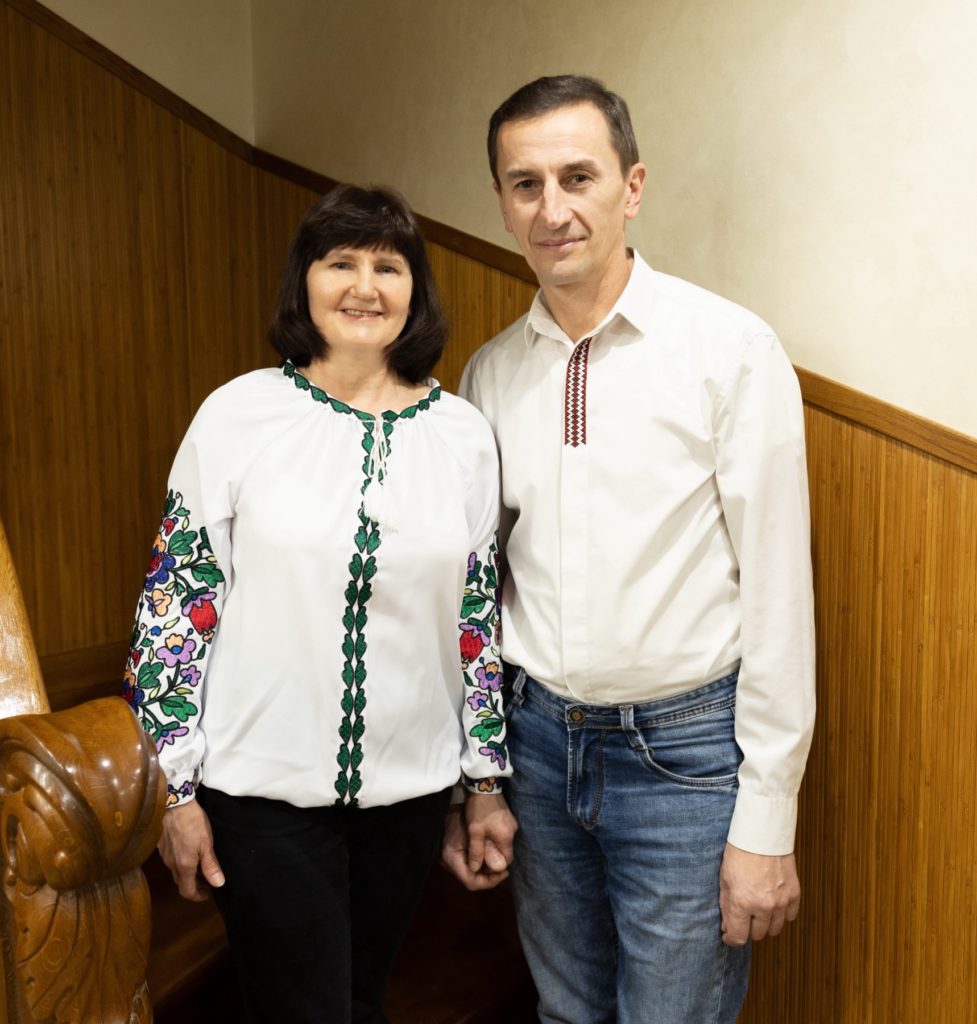
During the occupation, the members of Grace church even gathered on the streets to sing and pray; however, in summer 2022, Russian soldiers started to crack down on those they deemed suspicious and dangerous to the Russian government. They called them “American spies” and arrested and interrogated those people.
“We have already liberated you! Everything should be fine. Why are people leaving?” Mykhailo remembered one Russian occupier asking him this.
However, Mykhaylo viewed this situation differently.
“These people, far from spirituality, from religion, come and call themselves our defenders! They freed us from electricity, communication, water, and a normal life. And the Russian church supports this. I think that the Russians treat the church as a servant of the Kremlin, a servant of the regime, since Soviet times,” Mykhailo said.
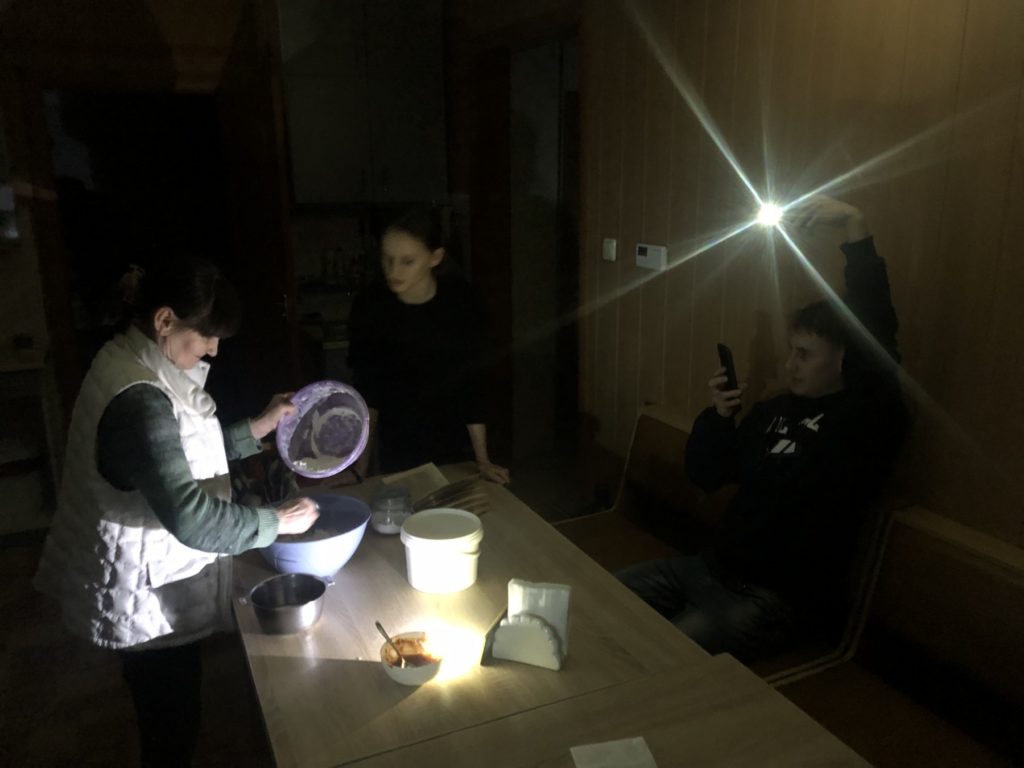
What does collaboration with Russian occupiers look like?
At first, the Russians tried to negotiate. They offered the protestants to accept Russian control and be loyal to their rule, meaning to promote the tales of Russian “liberation,” vocally support Putin, and speak against the “Kyiv regime.” Voicing and spreading these opinions was the only opportunity to exist as a church on the occupied territory.

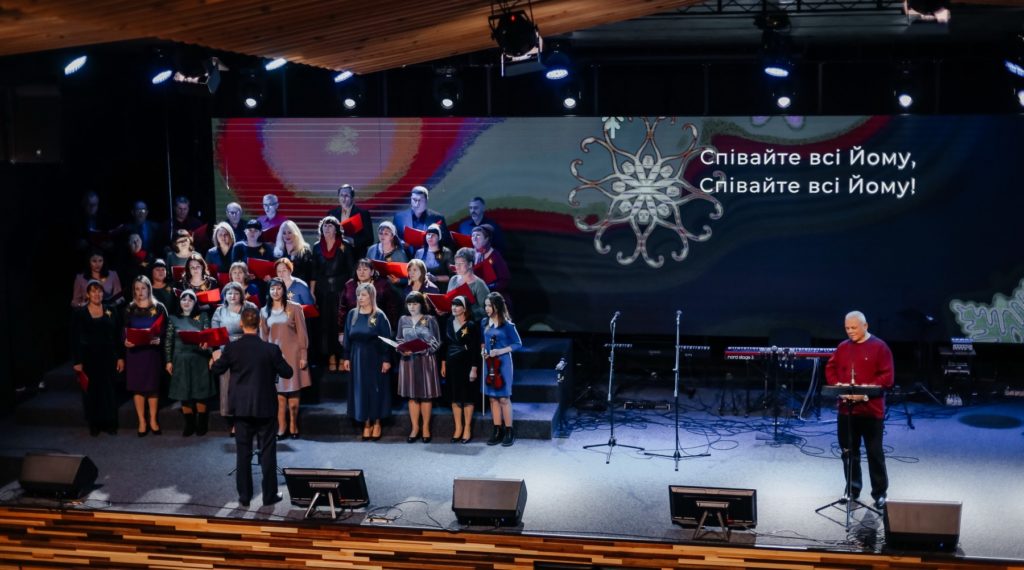
“When we said, sorry, we are a church, we are not going to engage in politics, we immediately became “extremists” and “spies”. Russians placed weapons at some churches, claiming that pastors did it. Some pastors were simply beaten there and kicked out,” Mykhaylo recalled.
Evangelical Baptist church building stolen by Russians and used to promote occupation
The turning point that incited Mykhailo and his family to flee Melitopol came on 11 September 2022. The Russian military, their faces hidden behind masks, broke into the church and interrupted the service. They let no one escape, took everyone’s fingerprints, documents, and photos, and interrogated all the ministers.
Then they took Mykhailo to his home and also rummaged there. At that time, he already heard the news that ministers in Kakhovka, a city in Kherson Oblast, had been killed, so they needed to flee urgently.
“They took our documents for the church, took all the computers, discs, tablets, and told us to get out, or they would kill everyone,” Mykhaylo recalled.
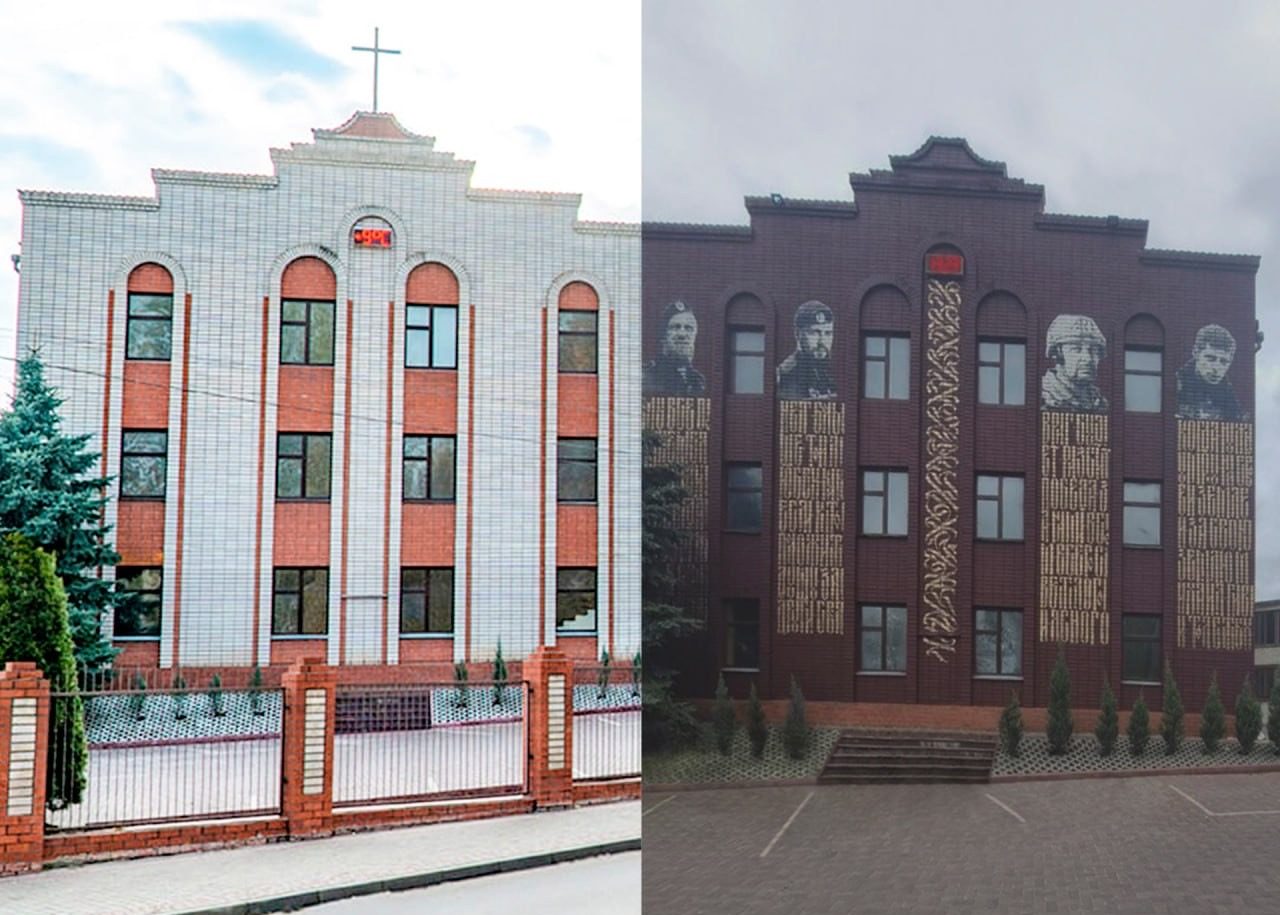
Now, Russians use the building of Grace Church for their Ministry of Culture of the Zaporizhzhia Oblast. They placed the portraits of “dead Russian heroes” in the church. Russian police officers or security forces live in other protestant churches. Some churches are simply looted and damaged. Churches in small villages might be left untouched, but in larger cities, those that do not align with the “Russian World” are often systematically purged.
Mykhailo moved to Western Ukraine and continued his ministry there. He helps internally displaced people with evacuation, adaptation, and renewal of documents. He also aims to shed light on the crimes toward religious institutions happening in the occupied Ukrainian territories. These crimes include persecution, arrests, torture, murders, and deportation of ministers. The pastor believes that Ukraine will liberate its Russian-occupied territories: only then would they flourish.
“Freedom will return there only when Ukraine returns because it was under the Ukrainian flag that we peacefully believed, prayed, and gathered” Mykhailo said.
Evangelical pastor Mykhailo, expelled from his native Melitopol
Ukraine’s Institute for Religious Freedom perspective on Russia’s religious persecution
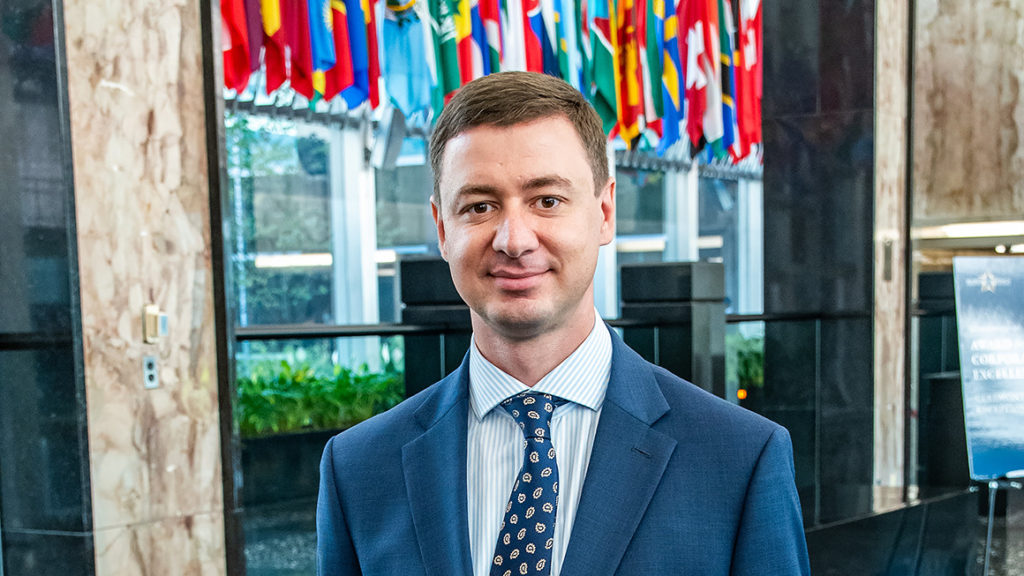
Ukrainian churches and religious communities in the territories Russia occupied after its full-scale invasion of 2022 will face total extinction, just like those that fell under Russian occupation after 2014, if Ukraine does not liberate them, according to Maksym Vasin, Executive Director of the Institute for Religious Freedom (IRF) and author of the report The impact of the Russian invasion on faith-based communities in Ukraine.
Maksym Vasin documents violations of religious freedoms and raises awareness about religious persecution in the occupied Ukrainian territories. The organization he works for, IRF Ukraine, has reported on the extensive damage and destruction of religious sites throughout Ukraine due to the war. They also register targeted attacks against religious figures and believers, especially those from different denominations or who exhibit aspects of Ukrainian national identity.
Russia’s approach to religious policy echoes the repressive tactics of the Soviet era, albeit with some key differences.
Whereas the Soviet Union promoted atheism and scorned religious belief, the modern Russian state has instead “merged with the Russian Orthodox Church, which has essentially become an ideological department of the Russian government.”
This symbiotic relationship extends beyond the Orthodox faith, as other religious groups in Russia, including Protestants and Muslims, also exhibit “complete dependence on the authorities.”
Even before the 2014 invasion of Ukraine, Russia exploited the influence of the Moscow Patriarchate within Ukraine to sow division, push the “Russian World” ideology, and propagate Kremlin narratives among Ukrainians, according to Maksym Vasin.
Maksym Vasin notes that the chauvinistic ideology of the “Russian World” actually denies the right of the Ukrainian nation to self-determination, sovereign development, its own state, language, history, cultural identity, and religious pluralism.
Russian forces have put these ideas into practice in occupied Ukrainian territories, targeting and killing pro-Ukrainian residents, “exterminating the intelligentsia,” and perpetrating widespread atrocities against civilians, including “torture, rape, murder, kidnapping, deprivation of liberty,” and other heinous crimes.
A prime example of restricting religious freedom on the occupied territories is the case of Jehovah’s Witnesses, who are officially labeled an “extremist organization” and prohibited in Russia. Consequently, for this religious group, the presence of Russian occupiers in Ukraine poses a direct threat of criminal prosecution simply for existing and practicing their faith.
Maksym Vasin identified several crucial steps to safeguard religious freedom in Russian-occupied territories:
- Disseminate accurate information about the situation in Ukraine and the terrible oppression of religious freedom by the Russian occupation authorities;
- Support Ukraine’s efforts in documenting and investigating Russian war crimes and bringing all war criminals to justice;
- Impose targeted sanctions against Russian officials, religious leaders, media workers, and other persons responsible for justifying and (or) carrying out repression against Ukrainian religious leaders and religious communities in occupied areas;
- Recognize the Russian Orthodox Church as a terrorist organization for publicly justifying and openly supporting Russia’s military aggression against Ukraine.
Related:
- Anatomy of treason: how the Ukrainian Orthodox Church sold its soul to the “Russian world”
- Theologian: Russian Church goes full Nazi with “holy war” on Ukraine
- Ukraine makes first step to ban Russian-backed church
- Moscow-backed Ukrainian Orthodox Church hires US lobbyist for $1400 per Hour
- Russian World: the heresy driving Putin’s war
- How the Russian Orthodox Church enabled Putin’s war against Ukraine




